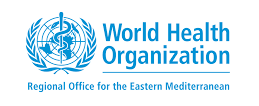Antimicrobial Activity of Pomegranate Punica Granatum Fruit on Bacteria Isolated from Health Centers
DOI:
https://doi.org/10.69667/amj.25215Keywords:
Antimicrobial activity, plant extract, Puncia Granatum, Minimum Inhibitory Concentration MIC.Abstract
This study explores the antibacterial potential of pomegranate (Punica granatum) peel and arils extracts against common pathogenic bacteria, including Escherichia coli, Klebsiella pneumoniae, Pseudomonas aeruginosa, and Staphylococcus aureus. With the rise of antibiotic-resistant bacteria posing a significant health threat, plant-based antimicrobial agents are gaining attention as viable alternatives to conventional antibiotics. In this research, ethanol and acetone extracts of pomegranate peel and arils were tested using the agar-well diffusion method. The antibacterial effectiveness was further assessed through Minimum Inhibitory Concentration (MIC) and Minimum Bactericidal Concentration (MBC) determinations. Results showed varying inhibition among bacterial strains, with both extracts displaying antibacterial activity. The ethanol extract generally produced larger inhibition zones, except for E. coli, where the acetone extract of the peel was more effective, exhibiting an MIC of 6.25 mg/ml. Meanwhile, the ethanol extract of pomegranate peel and arils showed superior activity against P. aeruginosa, with an MIC of 6.25 mg/ml. These findings suggest that pomegranate peel and aril extracts possess significant antimicrobial properties and could serve as promising natural alternatives to combat bacterial infections, particularly in the context of rising antibiotic resistance.












